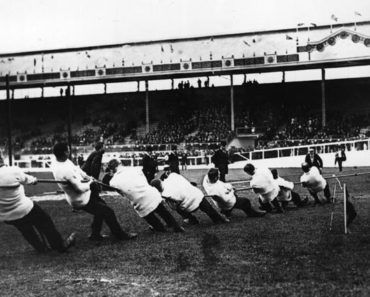Throughout the history of the Olympic Games, there have been several events that capture the attention of viewers due to their peculiarity and nonconformity to traditional Olympic sports. While most people associate the Olympics with the likes of track and field, swimming, and gymnastics, there are some lesser-known events that have left spectators in awe. These quirky competitions may not be as mainstream but have their own unique charm that sets them apart.
1. Race Walking
Race walking, also known as "funny walking," is a peculiar event that dates back to 1904. Participants in this event must maintain contact with the ground at all times and have to keep one foot on the ground at all times, even during the push-off. The rules of this event are so strict that it often appears comical. Athletes must walk with a specific technique, with bent knees and arms flailing to maintain balance and momentum. While it may seem unusual, race walking requires incredible endurance and strength, making it more challenging than it initially appears.
2. Synchronized Swimming
Synchronized swimming is an elegant water sport that combines aspects of dance, gymnastics, and swimming. It involves a team of athletes gracefully performing synchronized routines in the water, accompanied by music. Participants execute movements, flips, and acrobatic stunts while maintaining perfect coordination with their teammates. Synchronized swimming showcases the athletes' agility, strength, flexibility, and artistic expression. Although it may not receive as much attention as other sports, synchronized swimming captivates audiences with its artistic beauty and technical precision.
3. Curling
Curling is a unique winter sport that originated in medieval Scotland. The objective of the game is to slide stones on a sheet of ice towards a target area, called the "house." Participants use brooms to sweep the ice in front of the stone, affecting its speed and direction. Curling requires strategy, precision, teamwork, and masterful sweeping techniques. While it may not be the most physically demanding sport, it demands mental concentration and exceptional technique. Curling has gained a devoted following due to its mix of strategy, skill, and nail-biting tension.
4. Trampoline
Introduced as an official Olympic event in the year 2000, trampolining is a gymnastic discipline that combines acrobatics and bouncing on a trampoline. Athletes perform a series of flips, twists, and somersaults while reaching impressive heights. Judges evaluate the execution, difficulty, and overall performance of the routine. Trampolining showcases incredible athleticism, spatial awareness, and precision. The sport has gained popularity and continues to captivate audiences with its breathtaking mid-air acrobatics.
5. Dressage
Dressage is an equestrian event that showcases the harmonious partnership between horse and rider. Participants perform a series of choreographed movements, demonstrating the horse's obedience, flexibility, and precision. The event emphasizes the communication and connection between the rider's subtle cues and the horse's response. Dressage requires intense focus, discipline, and years of training. While it may not be as well-known as other Olympic events, dressage represents the elegance and grace of equestrian sports.
6. Modern Pentathlon
The modern pentathlon is a multi-disciplinary event that combines fencing, swimming, equestrian show jumping, running, and shooting. Invented by Baron Pierre de Coubertin, the founder of the modern Olympic Games, this event aims to showcase the diverse skills required by military messengers in the 19th century. The modern pentathlon tests competitors' versatility, endurance, and mental fortitude. The combination of events makes it a truly unique and demanding competition that defies the conventions of traditional sports.
The Olympics are not only a platform to celebrate traditional sports but also provide a stage for some truly offbeat events that defy tradition. From the seemingly comical race walking to the artistic beauty of synchronized swimming, these events showcase the diversity and inclusivity of the Olympic Games. Curling, trampolining, dressage, and the modern pentathlon further contribute to the unconventional nature of the Olympics. These strange events may not be as mainstream, but they leave a lasting impression on spectators, reminding us of the boundless possibilities of human athleticism and the essence of the Olympic spirit.

